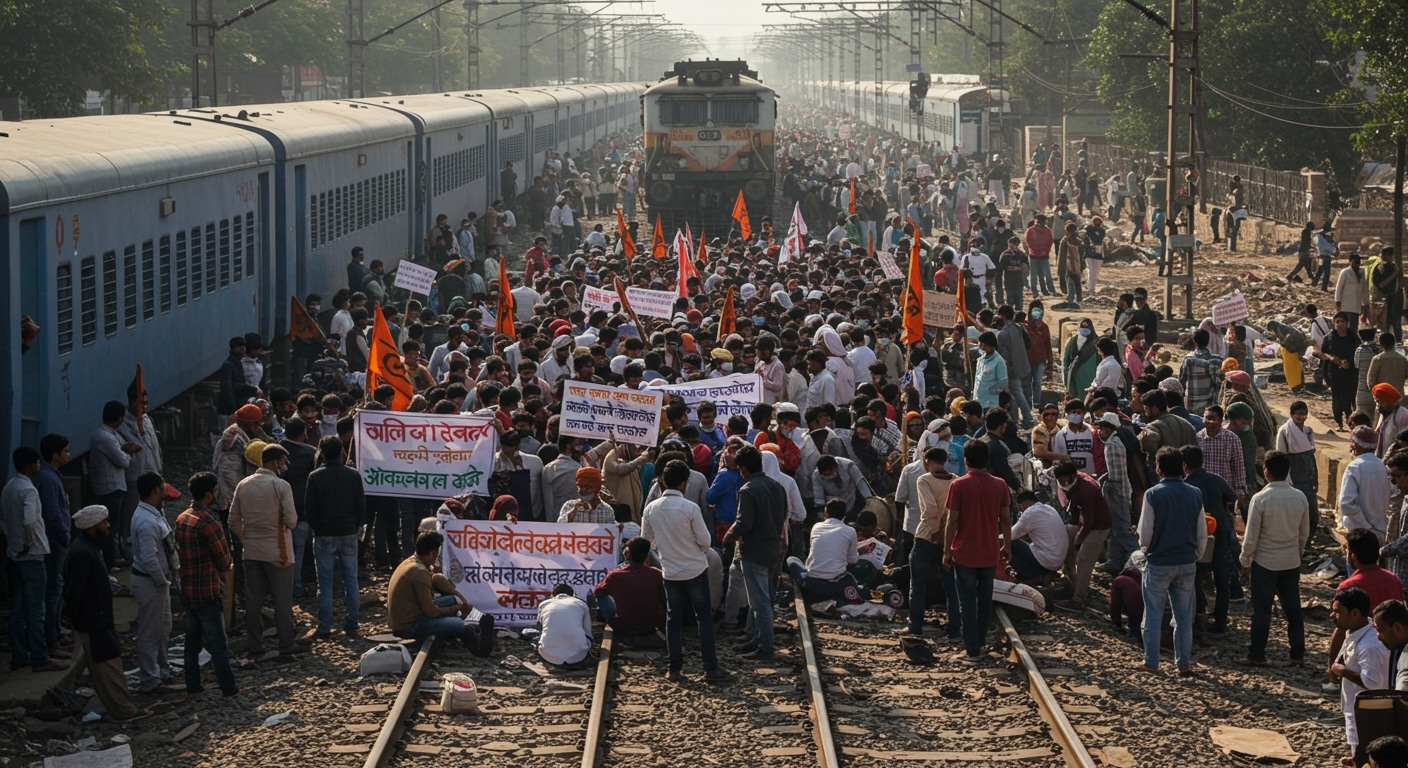New Delhi, India – India is experiencing significant disruption today, July 9, 2025, as a nationwide strike, dubbed the Bharat Bandh, takes effect across the country. The large-scale protest action has been orchestrated by a joint union representing 10 major trade organizations and various farmer bodies, signaling a broad coalition unified against key government policies.
The strike’s primary catalyst lies in deep-seated opposition to recent legislative changes, specifically new labor codes and the government’s push towards privatization across several sectors. Organizers articulate that these policies undermine worker rights and national assets. Beyond opposition, the protesting bodies have put forth concrete demands, including the implementation of a minimum wage set at ₹26,000 and the reinstatement of the old pension scheme, which they argue provides greater financial security for employees.
Expected Scale and Participant Demographics
The organizers project an unprecedented level of participation, anticipating that over 25 crore workers will join the strike. This figure encompasses a vast swathe of the Indian workforce from critical sectors. Employees from banking, insurance, postal services, and coal mining are expected to participate, highlighting the strike’s potential to cripple key financial and energy infrastructures. Furthermore, workers from the highway and construction sectors are poised to join the protest, potentially impacting ongoing development projects and transportation networks.
Adding significant weight to the ‘Bharat Bandh’ are farmers and agricultural laborers. Their participation underscores the broad nature of the grievances, extending beyond urban industrial concerns to rural agrarian issues, likely linking demands related to agricultural policies with those concerning labor rights and economic strategy.
Impact on Daily Life and Services
While the strike aims for widespread impact, certain essential services and public functions are expected to remain operational. Schools, banks, and offices are, for the most part, anticipated to stay open, according to initial reports and statements from various authorities. However, the nationwide scale of the protest means localized disruptions are inevitable.
The most significant impact on daily life is expected in the transportation sector. Services like public buses, taxis, and app-based cabs face potential disruption. This is not necessarily due to a formal strike by all transport unions, but rather the consequence of planned demonstrations and protest activities scheduled across various states. Roadblocks and localized gatherings are anticipated to impede traffic flow, leading to significant delays and cancellations in urban and inter-city travel.
Trade union leaders have explicitly indicated plans to implement roadblocks and undertake ‘rail roko’ actions, meaning protests on or near railway tracks intended to halt train movement. Such actions, if executed broadly, could paralyse the national railway network, a lifeline for both passengers and freight across India.
Current Situation and Reported Disruptions
As the Bharat Bandh commences on July 9, 2025, early reports suggest that the strike is indeed having an immediate effect. Disruptions have already been reported in major metropolitan centers, including Kolkata and Bengaluru. While the full extent of the nationwide impact is still unfolding, these initial reports from key urban hubs indicate that the organizers’ call for widespread protest is resonating with a significant portion of the workforce and the public.
The situation remains fluid, with authorities monitoring developments closely. The extent of disruptions is likely to vary regionally, depending on the strength of union presence and farmer body organization in specific states.
Broader Implications and Context
A strike of this magnitude, involving 25 crore potential participants and impacting vital sectors like banking, insurance, transport, and energy, carries substantial economic and social implications. It represents a direct challenge to the government’s policy agenda on labor reforms and privatization. The protesters’ demands for a substantially higher minimum wage and a return to the old pension scheme highlight deep-seated concerns about economic inequality, job security, and social welfare in a rapidly changing economy.
The Bharat Bandh serves as a powerful mechanism for trade unions and farmer bodies to voice their collective discontent and exert pressure on policymakers. Its success, measured by the level of participation and the extent of disruption, will likely influence future government approaches to labor relations and economic reforms. Conversely, the government’s response to these protests will be keenly watched, both domestically and internationally, as an indicator of its approach to dissent and its commitment to dialogue with stakeholder groups.
As July 9, 2025, progresses, the nation watches closely to see how the Bharat Bandh unfolds, the scale of disruption it ultimately causes, and whether it prompts any shift in policy direction from the government.





